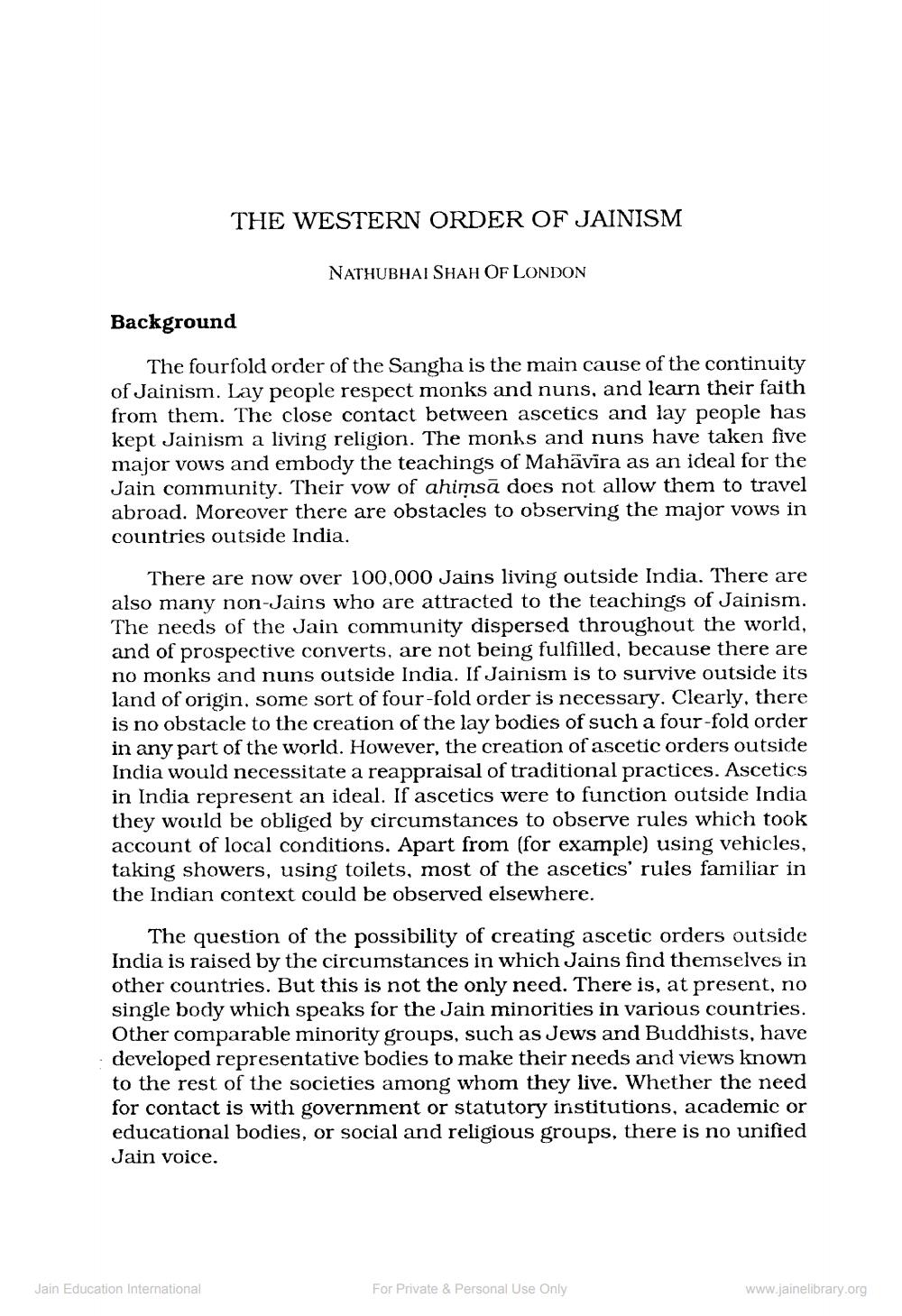________________
THE WESTERN ORDER OF JAINISM
NATHUBHAI SHAH OF LONDON
Background
The fourfold order of the Sangha is the main cause of the continuity of Jainism. Lay people respect monks and nuns, and learn their faith from them. The close contact between ascetics and lay people has kept Jainism a living religion. The monks and nuns have taken five major vows and embody the teachings of Mahävira as an ideal for the Jain community. Their vow of ahimsā does not allow them to travel abroad. Moreover there are obstacles to observing the major vows in countries outside India.
There are now over 100,000 Jains living outside India. There are also many non-Jains who are attracted to the teachings of Jainism. The needs of the Jain community dispersed throughout the world, and of prospective converts, are not being fulfilled, because there are no monks and nuns outside India. If Jainism is to survive outside its land of origin, some sort of four-fold order is necessary. Clearly, there is no obstacle to the creation of the lay bodies of such a four-fold order in any part of the world. However, the creation of ascetic orders outside India would necessitate a reappraisal of traditional practices. Ascetics in India represent an ideal. If ascetics were to function outside India they would be obliged by circumstances to observe rules which took account of local conditions. Apart from (for example) using vehicles, taking showers, using toilets, most of the ascetics' rules familiar in the Indian context could be observed elsewhere.
The question of the possibility of creating ascetic orders outside India is raised by the circumstances in which Jains find themselves in other countries. But this is not the only need. There is, at present, no single body which speaks for the Jain minorities in various countries. Other comparable minority groups, such as Jews and Buddhists, have developed representative bodies to make their needs and views known to the rest of the societies among whom they live. Whether the need for contact is with government or statutory institutions, academic or educational bodies, or social and religious groups, there is no unified Jain voice.
Jain Education International
For Private & Personal Use Only
www.jainelibrary.org




